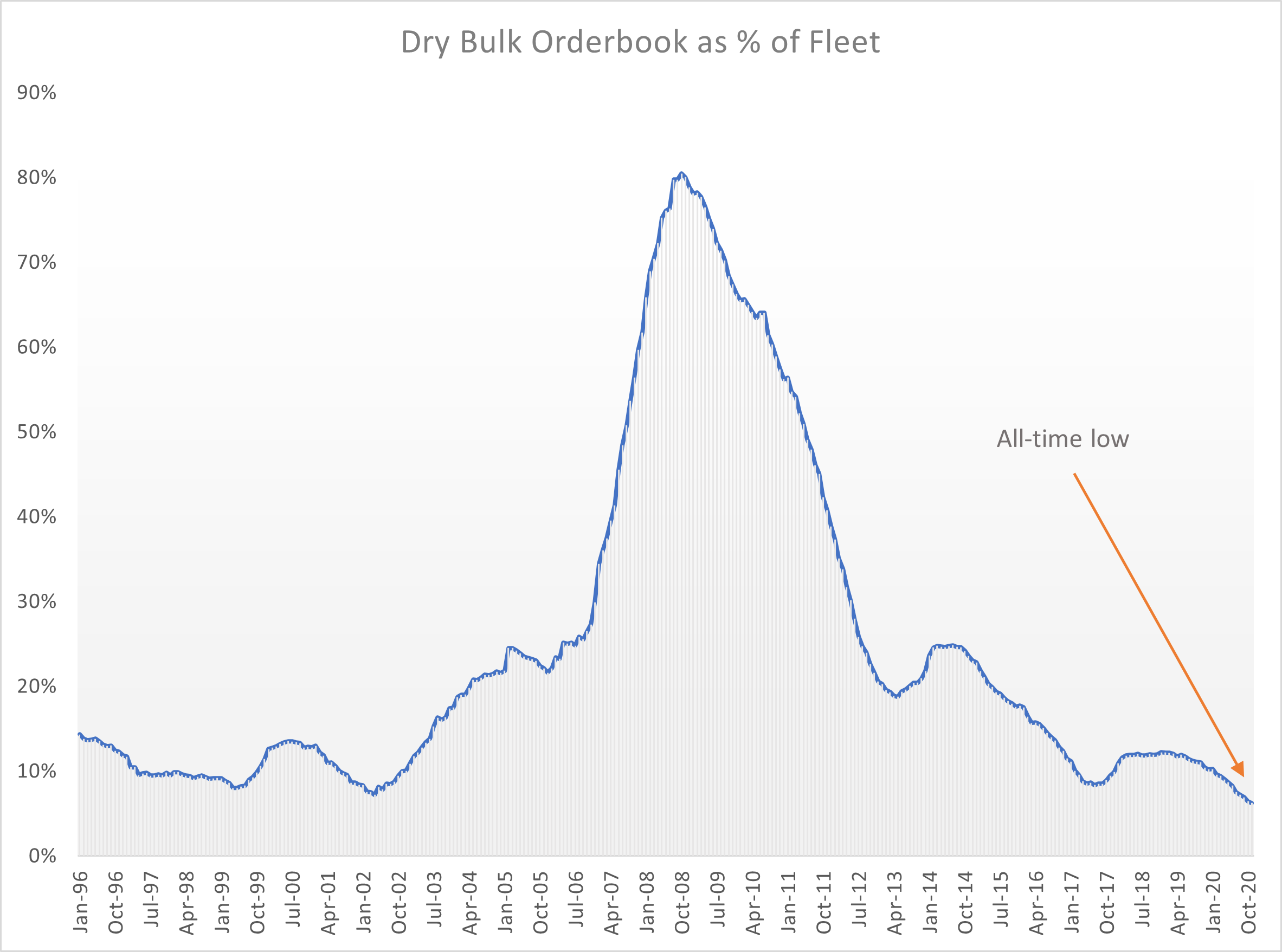The past decade has been quite challenging (to say the least) for dry bulk, as the ordering frenzy of the late 2000s had a meaningful impact on fleet growth in the early years of the decade outpacing demand growth by a wide margin and pushing fleet utilization to low levels. The dry bulk fleet almost doubled from 2000 to 2010, and it went to further increase by another 70% from 2010 to 2020. Although weak freight rates also led to higher scrapping with about 25% of the fleet ending up in scrapyards during the decade, that was no match for the significant growth in new deliveries. With more than 900 million dwt in current capacity, the dry bulk fleet has more than tripled since 2000 when a mere 5,000 bulkers were sailing across the oceans.
But such trend is about to change. A slew of new regulations relating to environmental issues is entering the arena and is having a profound impact on vessel operations, return on investment expectations and industrywide cost inflation. At a mere 6% of the fleet, the current dry bulk orderbook is the lowest it has ever been in modern times, reflecting owner’s reluctance for new vessel orders due to the heightened uncertainty of the new regulatory environment, technological changes in engine design and propulsion fuels and of course the poor performance of the sector since the booming 2000s.
Dry bulk shipping remains an “old economy” sector, transporting such “dirty” materials as coal and iron ore. The relative price paid for such service has remained low as the value-added portion of oceangoing shipping has also been very low. However, in the last few years, performance and, more importantly, safety and the environment is entering the picture with a vengeance and with that, sector-wide price inflation tends to follow. With investor appetite extremely low, an all-time low orderbook and an ever-changing regulatory environment, it is a sector ripe for transformation.
And such a transformation is not going to be a first. One of the most impressive such transformations happened in the US railroad industry that has experienced a renaissance over the past two decades, driving shareholder returns and profitability to spectacular levels with major improvements in service, safety and its impact on the environment. Today, railroads are owned by some of the most prominent investors in the world (See Warren Buffet’s Berkshire Hathaway).
It is really tough to see such a progress in dry bulk from where we stand today, as the global nature of the industry combined with the current commoditized approach towards shipping by commodity traders leave little room for such a development. But that was the case also in the railroad industry in the early years and competition combined with ever increasing regulations but also a shrinking supply of railroad availability, gradually changed the sector for the better.
Nothing is absolutely comparable, especially in such broad and idiosyncratic sectors in transportation. It is also extremely easy to disregard such changes and stick to the old paradigm of overordering. However the world is changing and shipping is not immune. With an all time low orderbook, significant cost pressure from upcoming regulations and the willingness by majors to pay up for safety and reliability, the gradual transformation of the sector to an industry with sustainable profitability, higher barriers to entry and a promising outlook for many years to come is possible.
Dry bulk transports more than 5 billion tons of cargo a year, and the sector’s positive growth has been steady (albeit slowing) for many decades. After all, the physical world is still separated by oceans. The next upcycle will not only be driven by the traditional supply/demand imbalance but also by the naturally occurring cost pressure due to quality that the new world is demanding for a safe, environmentally-friendly service. And such a change is already on its way right in front of our eyes, masked only by the industry’s dirty past that is about to transform to a brighter future.

